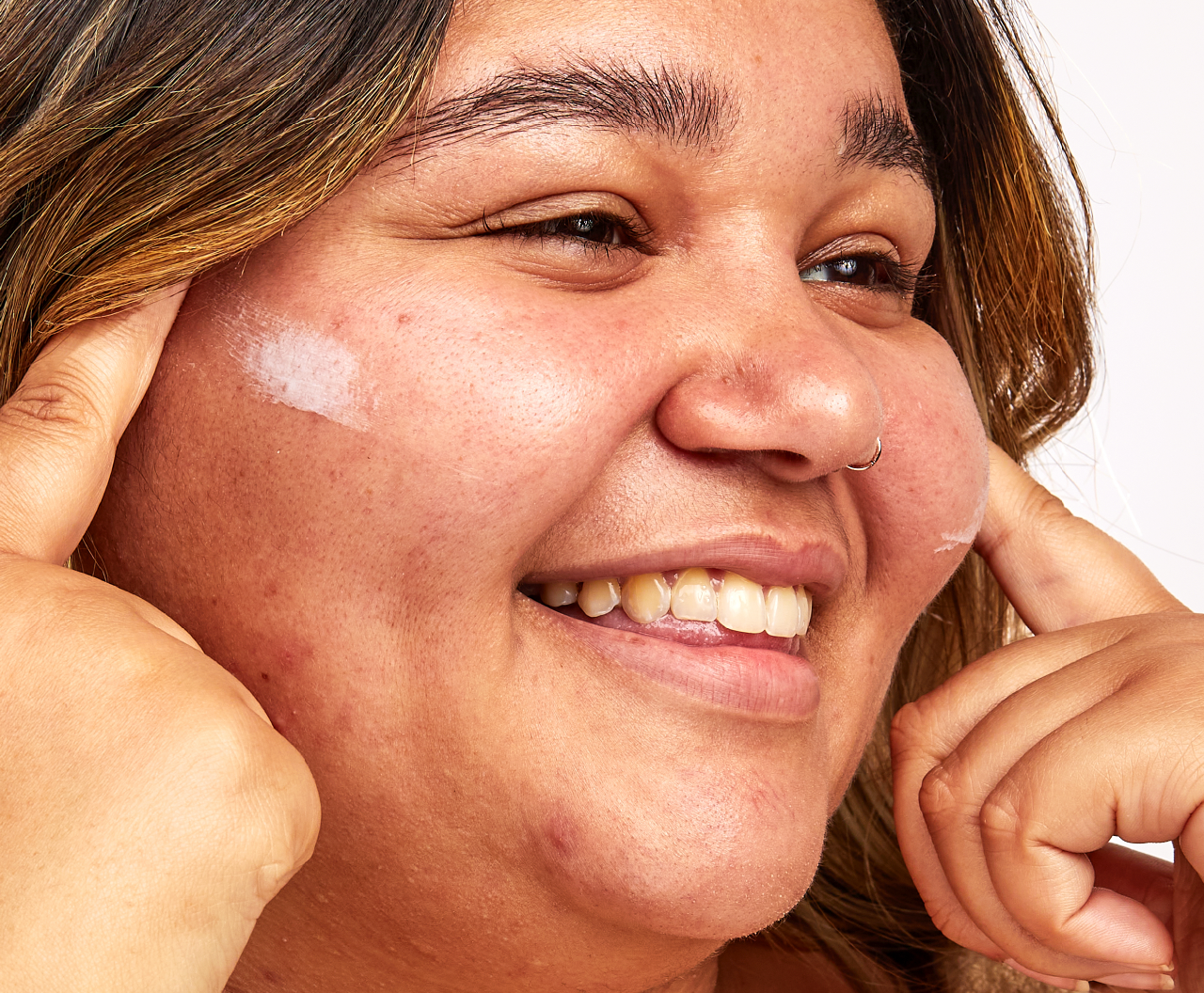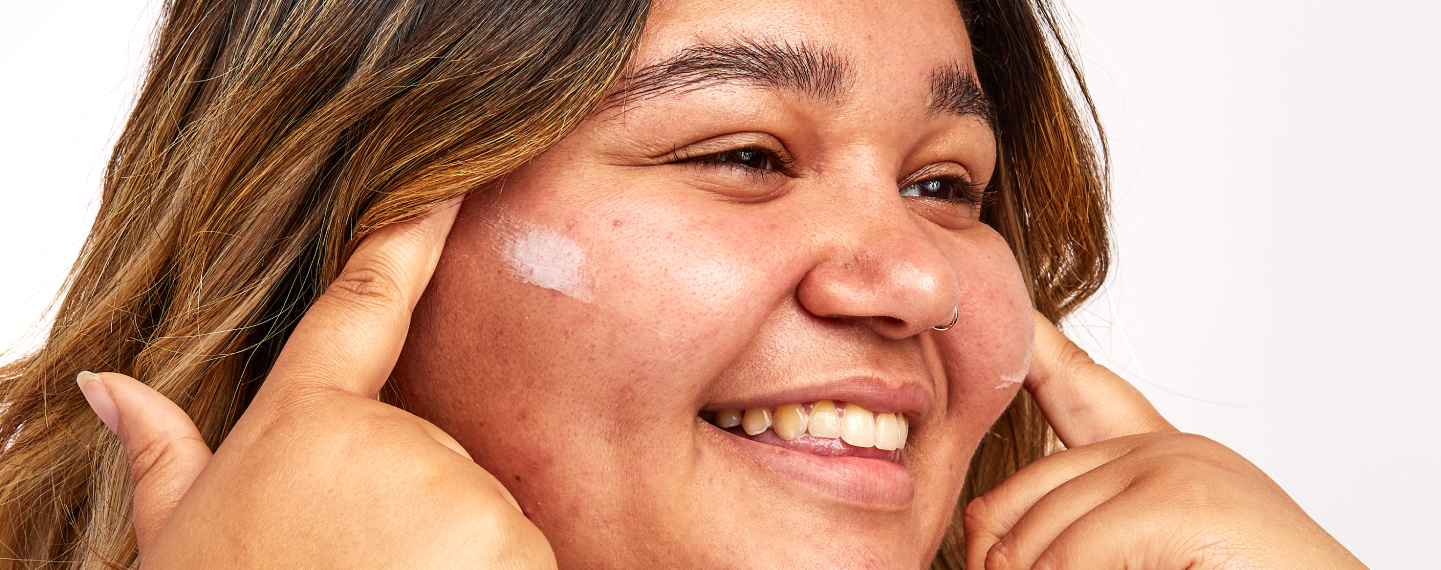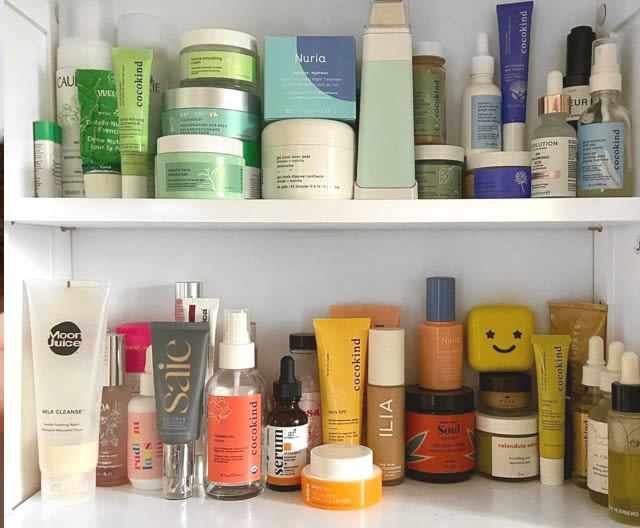Education
Sulfur for acne


SHARE
Education
Sulfur for acne
Medically reviewed by Kristin Hall, FNP
Written by Apostrophe Team
Last updated 4/1/2024
When it comes to skin conditions, acne won’t win any awards for being pleasant or easy-to-beat. Though it’s one of the most common skin problems around, it’s one that can require some level of trial-and-error to effectively treat.
In your attempts to attain clear skin, you can throw a lot of money at your pimples. Exfoliating, cleansing, treating, moisturizing -- all of these efforts can be in vain if you’re choosing the wrong treatment products. Acne-prone skin can benefit from the help of a dermatologist, but if you’re committed to investigating easily-available over-the-counter products, we understand why sulfur may have caught your eye.
Let’s take a closer look at this compound and how it might work to treat acne.
What is Sulfur?
Sulfur is an element with the atomic number 16 on the periodic table. In its pure state, it’s odorless, tasteless, and a pale yellow color. Interestingly, though it seems less than 1% of the earth’s crust is made up of sulfur, meteorites that have come to Earth have as much as 12%. It’s found in ocean water and is most concentrated in deposits surrounding volcanic regions.
Sulfur is primarily used in fertilizers, but also in pigments, explosives, batteries, detergents, paper, insecticides, fungicides, and numerous other products.
How It Works
We won’t get into how sulfur works in fertilizers, detergents, or anything like that. Because you’re here for acne, or how sulfur might work to remedy your breakouts and blemishes. According to a paper published in the Journal of Drugs and Dermatology, sulfur has been used to treat many dermatological conditions including acne, rosacea, dermatitis, dandruff, scabies, and warts.
The element has antifungal and antibacterial properties and inhibits the growth of P. acnes (now called C. acnes), the bacterium responsible for acne lesions. It also has keratolytic effects, which means it can break down excess skin, skin that may otherwise clog your pores.
Sulfur penetrates the skin within two hours of application, and after 24 hours is no longer detectable.
Acne Products With Sulfur
Sulfur-containing acne products are available without a prescription. These over-the-counter formulas typically feature sulfur as sodium sulfacetamide and may combine it with something known as resorcinol. Several clinical trials have found sulfur acne products to be effective at reducing inflammatory lesions, comedones (non-inflammatory acne lesions), and oily skin. These benefits were found when used alone and/or in conjunction with other acne treatments such as prescription retinoids and benzoyl peroxide.
Acne products with sulfur are pretty easy to find. Online retailers feature spot treatments, drying lotions, face scrubs and cleansers, soaps, and sulfur-containing masks. These products are relatively affordable, generally available for less than $50, with several for under $20.
Complaints and Side Effects
As with most acne solutions available over-the-counter, reviews on sulfur products are mixed. It isn’t entirely clear, however, if consumers who are saying the products are ineffective applied the treatments consistently and as-directed.
In general, sulfur-containing skin care products may cause mild irritation or have an unpleasant smell. So like any addition to your skin care routine, test a small section of your skin before using often and broadly.
References
Like what you just read? Sign up for our email list to get the scoop on skincare science delivered straight to your inbox.

Education
What is milia?
What is milia? Today, we’re jumping into one type of bump that you may have heard about most commonly in infants — milia.
Read More
Education
Best moisturizer for acne-prone skin
If you have combination acne-prone skin, figuring out which moisturizer is best for your skin might be tough. In this guide, we break down the best moisturizer for combination, acne-prone skin.
Read More
Education
How to build a face care routine
As you get into skincare, it might seem overwhelming, especially trying to figure out the order you're supposed to apply products in. Below, we detail how to build a face care routine for your skin!
Read More
